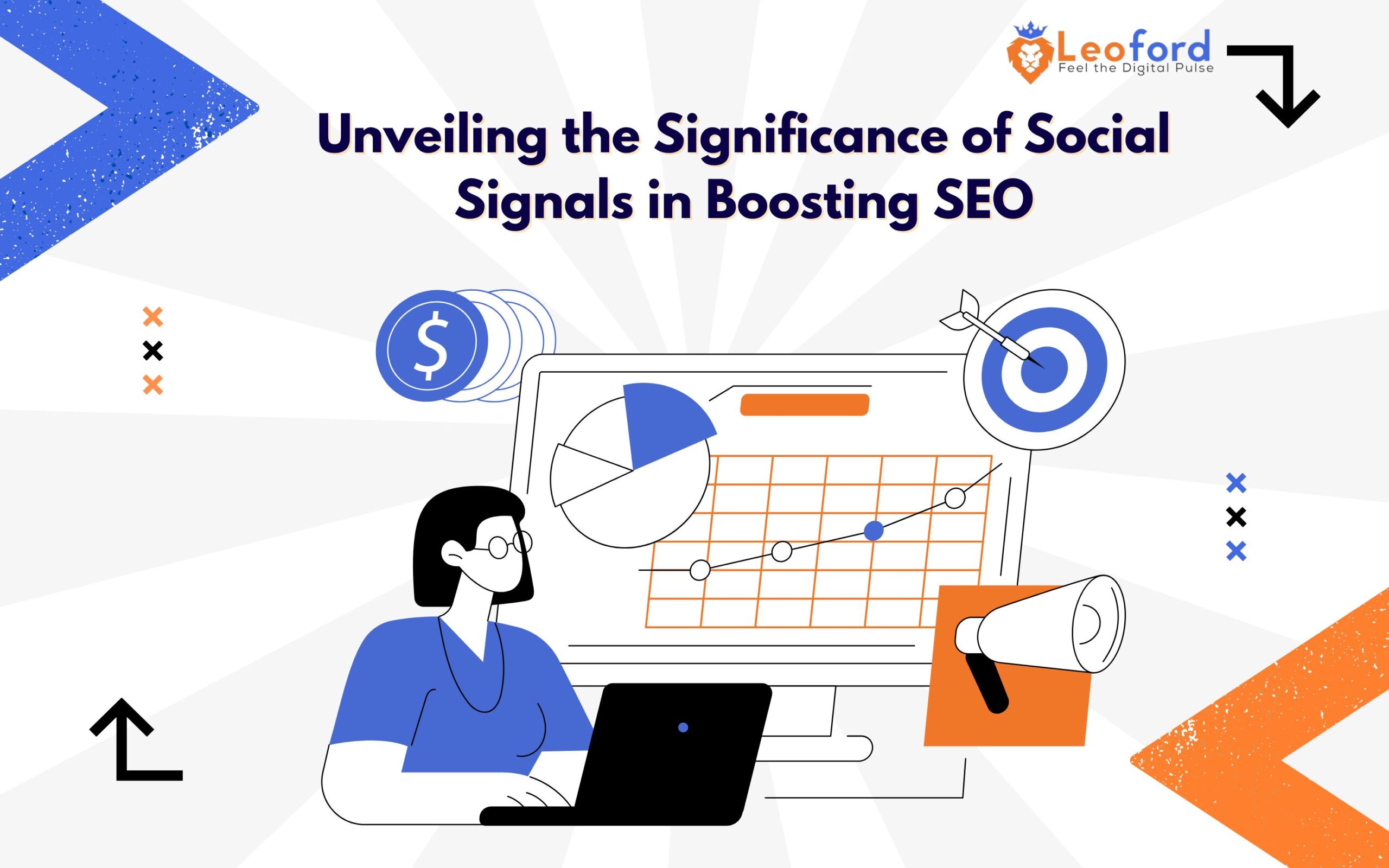Introduction:
In the ever-evolving landscape of SEO, website owners and digital marketers are constantly seeking innovative strategies to elevate their site’s visibility on Search Engine Result Pages (SERPs). While traditional practices like on-page SEO, quality backlinks, and keyword optimization remain vital, a relatively newer aspect, social signals, is gaining prominence. This article delves into the pivotal role of social signals in SEO, shedding light on their impact on search rankings and effective control strategies.
Understanding Social Signals:
Social signals encompass online interactions and engagements that content or a website receives across various social media platforms. These interactions include likes, comments, mentions, and shares on platforms such as Facebook, Instagram, Twitter, and more. Search engines like Google and Bing consider these signals as indicators of a website’s authority and credibility. The rationale behind incorporating social signals into SEO algorithms lies in the belief that content resonating with users on social media is deemed relevant and valuable, thus influencing search engine rankings positively.
Impact of Social Signals on SEO:
Enhanced Brand Visibility: Social signals significantly contribute to increasing a brand’s online visibility. When content is shared on social media, it reaches a broader audience, leading to organic growth in website traffic.
Increased Website Traffic: Engaging content shared on social media channels can drive substantial traffic to a website, signalling to search engines that the content is of high quality and relevance.
Improved Credibility and Trustworthiness:
Content receiving positive social signals is perceived as more trustworthy and credible. Higher social engagement can positively influence search engine rankings, helping the website reach its target audience more effectively.
Faster Indexing:
Search engines regularly crawl social media platforms, resulting in quicker indexing of web pages that receive social signals. This expedites the visibility of the content on search engine results.
User Engagement:
Social signals serve as indicators of user engagement. Regular likes, shares, and comments signify that users find the content valuable, aligning with search engines’ goal of delivering optimal results.
Backlinks:
Social media can act as a source of valuable backlinks. Shared content may attract links from other websites, positively impacting the overall SEO of a website.
Controlling Social Signals Effectively:
Create Shareable Content: Craft informative, engaging, and high-quality content that resonates with the target audience, encouraging them to share it within their social networks
Optimize for Social Sharing:
Facilitate content sharing by incorporating social sharing buttons on your website, enabling visitors to share with a single click.
Share on Multiple Platforms:
Diversify your social media presence by sharing content across multiple platforms to reach a wider audience.
Engage with the Audience:
Actively respond to comments and engage with the audience on social media platforms, fostering a community around the brand and generating valuable social signals.
Use Relevant Hashtags:
Enhance content discoverability on platforms like Instagram and Twitter by using relevant hashtags when sharing.
Encourage User-Generated Content:
Motivate your audience to create and share content related to your products or brand, fostering increased brand awareness and generating additional social signals.
Social Signals and SEO Ranking Factors:
While social signals are not direct ranking factors in Google’s algorithm, they exert an indirect influence on crucial aspects such as user engagement, backlinks, and website traffic. Focusing on creating compelling content and actively engaging with the audience on social media can yield positive results across various SEO efforts.
Conclusion:
In conclusion, this exploration has illuminated the major role of social signals in SEO. Incorporating effective social signal strategies into your overall SEO approach can undoubtedly contribute to a more robust online presence and improved search engine rankings.






